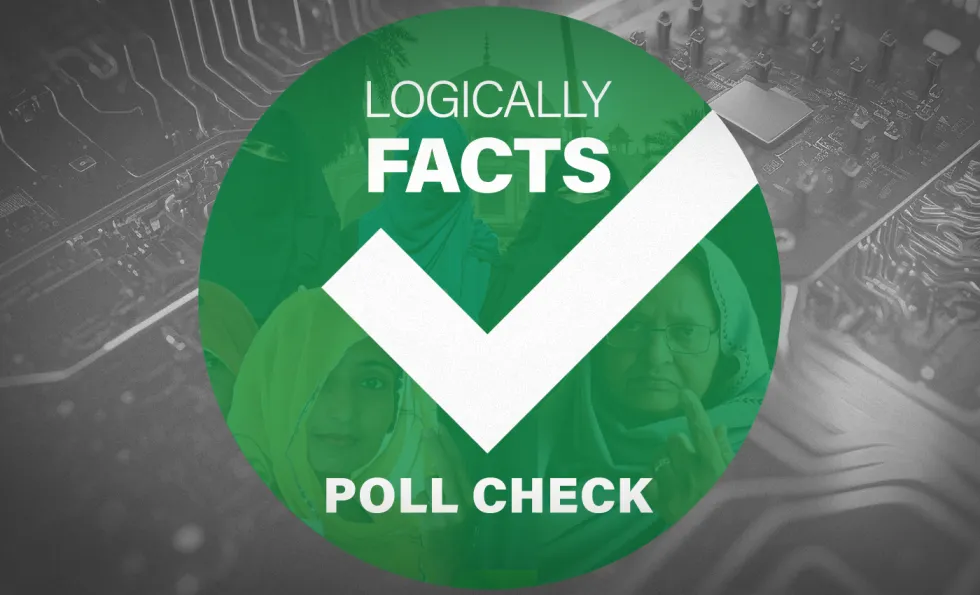By: Soham Shah
March 12 2024
 (Source: LF Poll Check/Logically Facts)
(Source: LF Poll Check/Logically Facts)
Artificial intelligence and simulated content have spurned discussions on robot takeovers, ethics, job losses, and financial fraud. But in a year of “super elections,” AI is playing a major role in campaigning — and in India, cheap and easy tools are being used to create content ranging from memes to deepfakes and simulated audio.
We’ve usually seen examples of pop culture referenced to create deepfakes, such as a clip of opposition leaders Rahul Gandhi and Sonia Gandhi’s faces overlaid onto a popular Indian comedy television series, or a video from ‘Kaun Banega Crorepati’ (‘Who wants to be a millionaire?’) circulated ahead of the 2023 Madhya Pradesh elections claiming that the host asked questions mocking former state Chief Minister Shivraj Singh Chouhan.
But this year, as India heads to polls, AI-generated content is being created to aid and stoke particular narratives. For example, an Instagram page uploaded watermarked deepfakes of world leaders such as former U.S. President Donald Trump and North Korean leader Kim Jong-un saying “Jai Shree Ram” after the Ram Mandir inauguration in January 2024, while another shared by the opposition party Indian National Congress’ Uttar Pradesh Instagram page altered a speech of Prime Minister Narendra Modi to praise businessman Gautam Adani.
“These are incredibly transformative and radical generative tools that may be used by those who are already seeking to use online tools for campaigning and electioneering, but also for either targeted or more general widespread disinformation,” according to Raman Chima, Asia Policy Director at Access Now.
Although the Election Commission of India (ECI) monitors official social media accounts of political candidates and tracks ad spending, Chima highlighted that rules on social media conduct do not apply to the actions of IT cells and social media operatives of parties. “You have a code of conduct for social media that the Election Commission of India has, but it's a very flawed one actually created by an internet industrial lobby group itself and then given to the ECI,” he added.
Kiran Arabaghatta Basavaraj, a research fellow at University College London, told Logically Facts that since AI no longer requires any programming skills, it can be used by anybody who is looking to spread misinformation. “If we take a look at how parties are campaigning, they're bombarding (the public) with information, misinformation, and all kinds of content. When I was interviewing some of the campaigners, they said the first hit is what matters to them. By the time it's fact-checked or verified, it doesn't matter,” Basavaraj said.
As responsible online users, keeping an eye out for AI-generated tags on political videos or photos, looking for inconsistencies in the content, and verifying before sharing, are some simple steps we can take to minimize damage caused by such simulated content.